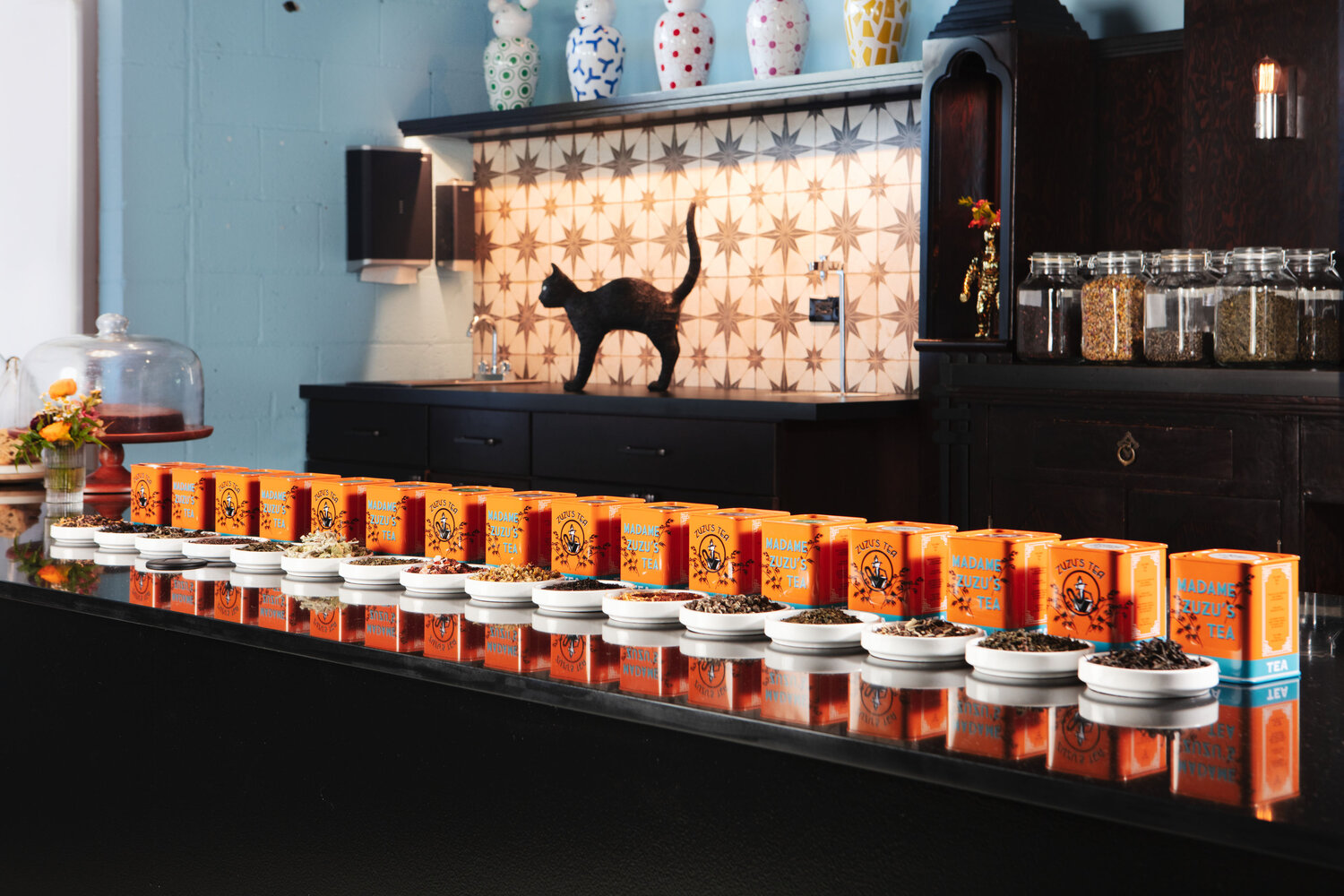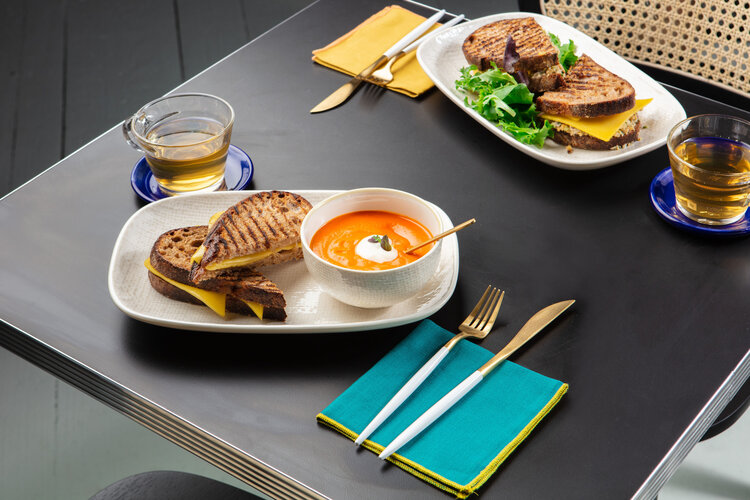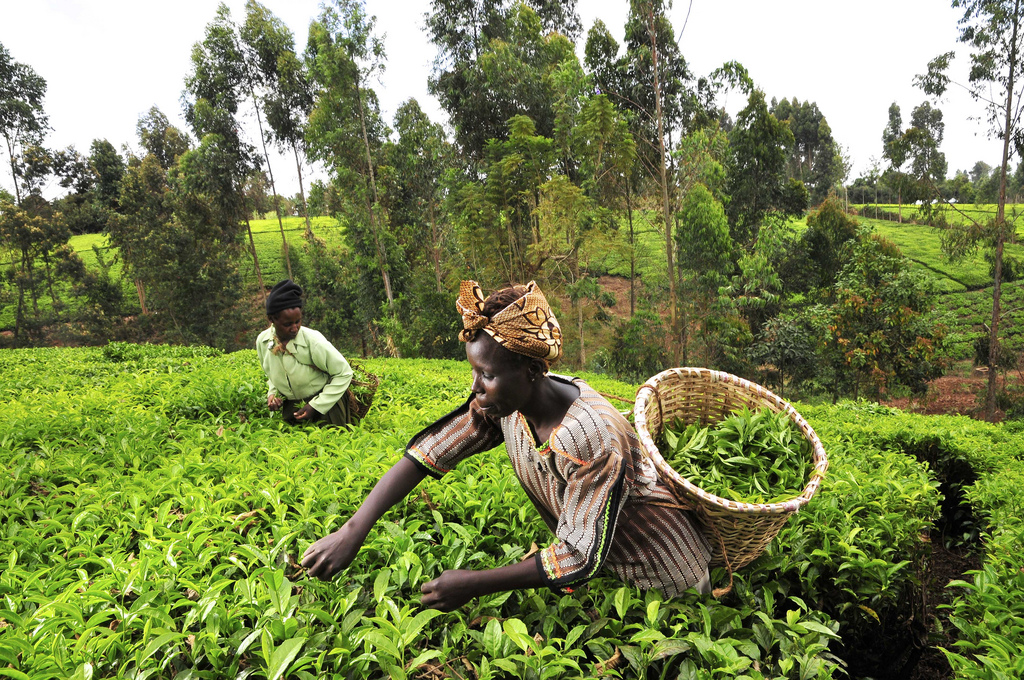Tea Industry News for the week of September 9, 2020
- COVID Study Implicates Restaurants
- Retail Stirrings Billy Corgan Resurrects Madame ZuZu’s Tea Emporium
- Unilever Divestiture Worries Plantation Workers

COVID Study Implicates Restaurants
CDC: Dining-in Poses Risk
The US Centers for Disease Control and Prevention (CDC) finds that adults with COVID-19 are about “twice as likely” to say they have dined at a restaurant during the 14 days before testing positive for the disease.
The study, which was limited to those experiencing symptoms, examined 314 adults at 11 different health care facilities in 10 states. Half (154) tested positive, and 160 tested negative for COVID-19.
Those who tested positive “were approximately twice as likely to have reported dining at a restaurant than were those with negative SARS-CoV-2 test results,” according to the study. As a result, researchers recommend that “efforts to reduce possible exposures where mask use and social distancing are difficult to maintain, such as when eating and drinking, should be considered to protect customers, employees, and communities.”
“Adults with confirmed COVID-19 (case-patients) were approximately twice as likely as were control-participants to have reported dining at a restaurant in the 14 days before becoming ill,” according to the CDC. “In addition to dining at a restaurant, case-patients were more likely to report going to a bar/coffee shop,” according to the report released Sept. 11.
“Reports of exposures in restaurants have been linked to air circulation. Direction, ventilation, and intensity of airflow might affect virus transmission, even if social distancing measures and mask use are implemented according to current guidance. Masks cannot be effectively worn while eating and drinking, whereas shopping and numerous other indoor activities do not preclude mask use,” according to the study.

Researchers report that 71% of the COVID-19 positive patients said they work masks in public; 74% of those who tested negative said they always wore face coverings in public.
“In this investigation, participants with and without COVID-19 reported generally similar community exposures, with the exception of going to locations with on-site eating and drinking options,” writes CDC.
Forty-two percent of those who tested positive reported having close contact with at least one person known to have COVID-19, most often family members.
The study mentions five limitations, including small sample size and the fact that participants were aware of their test results. “Of note, the question assessing dining at a restaurant did not distinguish between indoor and outdoor options,” according to researchers, who say additional research is warranted but caution that “eating and drinking on-site at locations might be important risk factors associated with SARS-CoV-2 infection.”
CDC: Community and Close Contact Exposures Associated with COVID-19 Among Symptomatic Adults ?18 Years in 11 Outpatient Health Care Facilities — United States, July 2020
Billy Corgan Resurrects Madame ZuZu’s Tea Emporium

Two years after closing, and in the middle of serious viral spread in Chicago, Billy Corgan is bringing back Madame ZuZu’s Tea Emporium on First Street in Highland Park.
Singer and song writer Corgan, who founded the Grammy-Award winning Smashing Pumpkins, promises “to carry on ZuZu’s tradition of a whimsical atmosphere but in a larger, Art Deco space reminiscent of a 1930’s tea salon.”
Partner Chloe Mendel told Eater Chicago that she and Corgan are sourcing from the Rare Tea Cellar, a local gourmet tea supplier with a global reputation. In addition to superior teas, the cellar offers $195 olive oil and bottled mixes like Umami Shrubbery and Forbidden Forest Lapsang Souchong Syrup.
The avante-garde vegan menu expands on the original, featuring $10.25 salads such as kale power salad, Chinoise crunch and Salad Niçoise. Chloe’s tomato soup is $4.95 a cup and sandwiches sell for $8 to $12. Specialties include grilled vegan cheese and vegan Gado Gado tofu bowl and a miso bowl with pickled veggies and coconut rice.

“I quickly learned that the delicious world of plants is so overlooked,”says Mendel, who crafted several plant-based dishes.s here
Iced tea sells for $3 a glass and a Korean Blue Elektra Matcha is priced at $4.50. There is a Reishi cappuccino and a Lionsmane Mushroom Coffee ($5) on the drink menu. The rare teas are about double these prices.
“Our business model is simple: healthy living combined with an open source venue for the arts, where everyone in our community can gather and share,” writes Corgan, who opened the first location in 2012.
At the time he told Crave Magazine, “I’m a tea guy and living in Highland Park since 2003. I’ve always wanted to open a salon like this for everyone to enjoy,” Corgan told Crave Online. “This is a place with no age boundaries. We hope to attract everyone from young students to seniors. With a blend of music, photo galleries, art displays and speakers, I think Madame ZuZu’s offers something for everyone.”

There will be no impromptu concerts for now. The shop operates under COVID-19 restraints limiting dining-in, so take-out is a good option. Staff are tested for COVID-19 daily, writes Corgan.
Amid hundreds of store closings, a steady trickle of new tea shops and cafes are re-opening. Eater Chicago lists Sawada Coffee, the Living Water Tea House and El (evated) Ideas, a Michelin-starred restaurant. Keep in mind that while tea shops sell a tiny fraction of the total volume on offer, places like Madame ZuZus influence conventional tea drinkers to give specialty teas a try.

Unilever Divestiture Worries Plantation Workers
The announced divestiture of tea holdings by the world’s largest tea supplier makes uncertain the fate of the company’s wholly owned tea gardens and hundreds of smaller gardens under contract.
In July, following a strategic review begun in January, London-based Unilever said it will break up its tea business, retaining only bottling partnerships while continuing operations in India and Indonesia. The rest of the company’s tea assets, including several tea estates, will be sold at auction.
Click to see and interactive map of Unilever’s suppliers. Download link to suppliers.
Unilever purchases 10% of the world’s tea, employing more than one million workers in 21 countries. Brands currently marketed by the company include Lipton, PG Tips, Brooke Bond, Pure Leaf, TAZO, Bushells, T2 (retail shops), and 21 smaller brands sold in more than 150 countries. Lipton Yellow Label, the world’s best-selling tea brand, accounts for 7% of black tea sales globally. Sales of green tea are insignificant when compared to Asia brands. The tea division is valued at $4-$5 billion, according to financial analysts at Barclays.
Unilever will retain the core brand in high-growth markets and divest in slow-growth regions such as Australia and Europe where the popularity of black tea is in decline, according to Allied Market Research.
In Kenya, 60,000 workers employed by Unilever Tea Kenya Ltd. anticipate a gradual scaling back of operations at the 8,700-hectare Kericho Tea Estate. Staff are uneasy, according to The Nation which reports Unilever “has not yet revealed its plans with its Kenya operations to shareholders, who have endured five years without receiving dividends owing to losses.”
In August Sylvia-ten Den, managing director at Unilever Kenya Tea Ltd. advised the Kenya Agricultural and Plantation Workers Union (KPAWU) “that the company is changing its operation model.”
“She writes that Unilever will form a new company to manage its global tea business, and that the form and shape of the new entity will be decided at the end of next year. She assures that until then operations will proceed as normal,” according to The Nation.
Unilever contracts with 30 Kenya tea estates and the Kenya Tea Development Agency (KTDA) which represents another 69 estates producing black and green tea.
In addition to Kenya, Unilever contracts with tea gardens in Malawi (21), Uganda (13), Tanzania (12), and Zimbabwe (6). It is likely that Unilever will continue to purchase tea grown in Africa but marketed under its India brands. Brooke Bond, which was acquired by Unilever, has a century-old tradition of growing tea in Africa.
The coronavirus pandemic is forcing companies to reassess their core divisions and shift focus to higher-growth areas, say bankers and mergers and acquisitions lawyers, according to MarketWatch.
“So far this year, companies globally have sold 8,895 non-core assets worth a total of $391 billion, according to financial data provider Refinitiv. That compares to 11,294 asset sales worth almost $415 billion for the same period in 2019,” writes MarketWatch.
Subscribe and receive Tea Biz weekly in your inbox.


